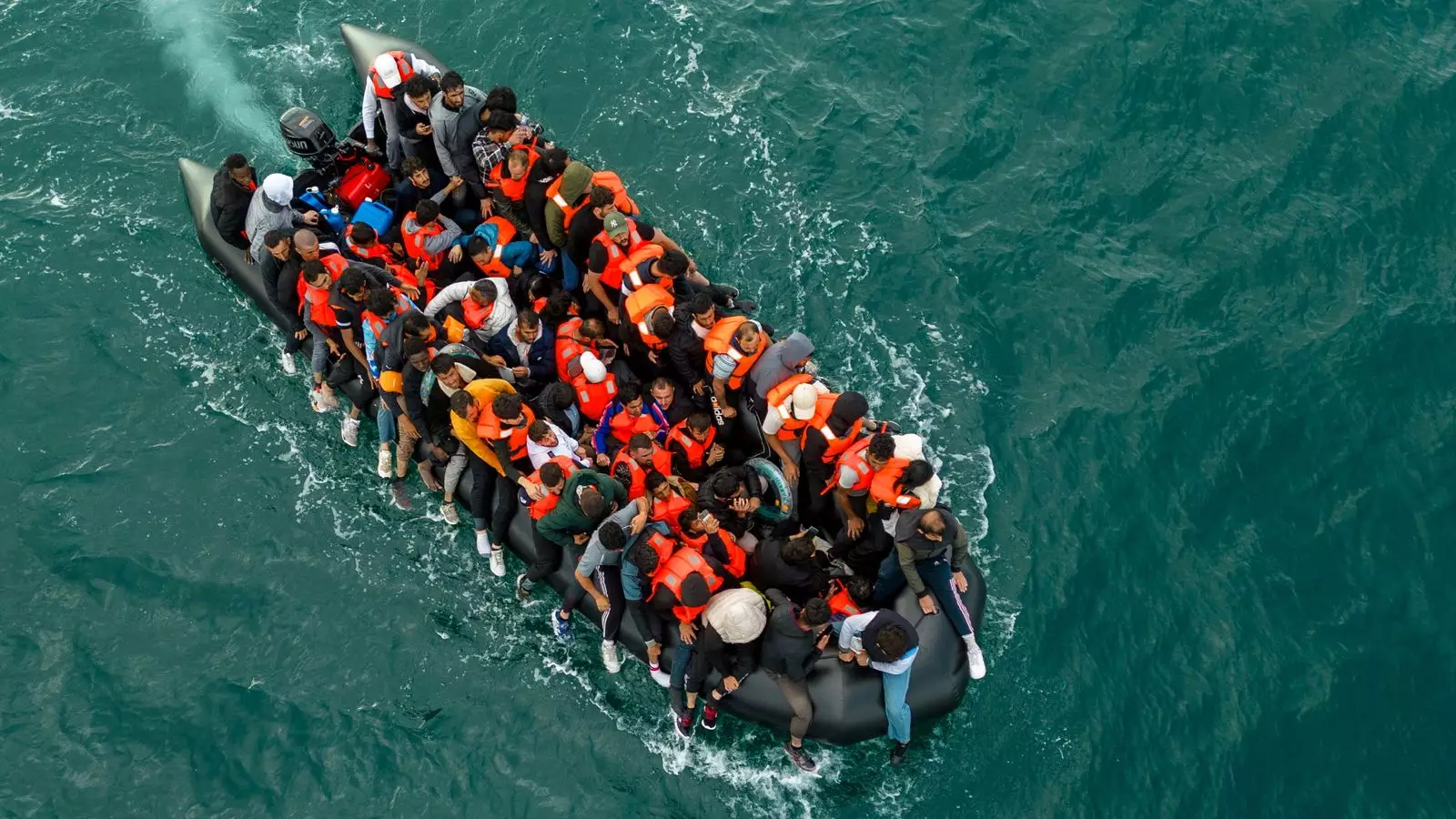The UK government’s recent updates to immigration guidance reflect a significant and controversial shift in policy regarding citizenship for individuals arriving through irregular means. As the landscape of migration continues to evolve, these changes in guidance raise complex questions about human rights, integration, and the very definition of what it means to belong to a nation.
Effective from February 10, the Home Office has introduced a new “Good Character” guideline that states individuals who enter the UK illegally—whether by small boat or hidden in vehicles—will typically be denied British citizenship. This marks a departure from previous norms, where applicants could aspire to citizenship after a 10-year waiting period, regardless of their mode of arrival. The explicit categorization of “dangerous journeys” in the new directive underscores a shift toward a more punitive approach to immigration, particularly aimed at deterring crossings that have garnered significant media attention and political outcry.
The implications of this change cannot be understated. By categorically excluding illegal entrants from the possibility of citizenship, the government is not only tightening the immigration valve but also defining a new moral and legal boundary that could alienate whole segments of the refugee population. The increased number of individuals arriving in small boats—reportedly rising to nearly 25,000 in a recent timeframe—only amplifies the urgency and necessity of finding humane solutions rather than punitive measures.
Political Reactions and Public Sentiment
The response from various political factions and humanitarian groups has been immediate and intense. Critics like Labour MP Stella Creasy have voiced concerns that the new guidelines perpetuate a system of second-class citizenship for refugees. Creasy’s comments highlight the moral dilemmas inherent in denying citizenship despite granting refugee status. The ethos of providing refuge seems at odds with systems that prevent full integration into society, raising ethical questions about what it means to offer sanctuary.
Enver Solomon, CEO of the Refugee Council, argues the alterations “fly in the face of reason,” suggesting that the public sentiment leans towards welcoming refugees in a manner that fosters integration. The overwhelming reaction from civil society emphasizes that repurposing policy to erect barriers contradicts the values of compassion and community that define the country’s collective identity.
The introduction of stricter citizenship guidelines doesn’t exist in a vacuum. Instead, it is part of a larger trend where immigration policies are being restructured to tackle the complexities of human migration amidst rising emotions surrounding national security and public safety. The newly proposed Border, Security, Asylum and Immigration Bill, which has garnered overwhelming support, seeks to bolster the powers of immigration authorities while simultaneously dismantling previous agreements about relocating asylum seekers to Rwanda. Such movements beg the questions: Are these measures effective solutions, or do they merely reflect a fear-based response to a global crisis?
The intertwining narratives of border security, national identity, and humanitarian relief create a dense fog through which both policymakers and citizens must navigate. Striking the right balance between securing borders and preserving human rights is a delicate task that weighs heavily on the UK’s political landscape and its global standing.
As the UK grapples with its evolving immigration policy, it becomes clear that the implications of these changes extend well beyond mere legal frameworks. They sketch a future where the notion of citizenship may come to be seen through a more exclusionary lens. The challenge ahead lies in developing cohesive and compassionate policies that can accommodate those who hastily flee their homelands in search of safety while enabling a genuine sense of belonging and participation within British society.
As the dialogue continues, it remains integral for both government and public opinion to be guided not only by the imperatives of security but also by the democratic values that embrace diversity and encourage unity. In a world increasingly characterized by displacement and migration, the call for a more nuanced approach to citizenship has never been more pressing.


Leave a Reply